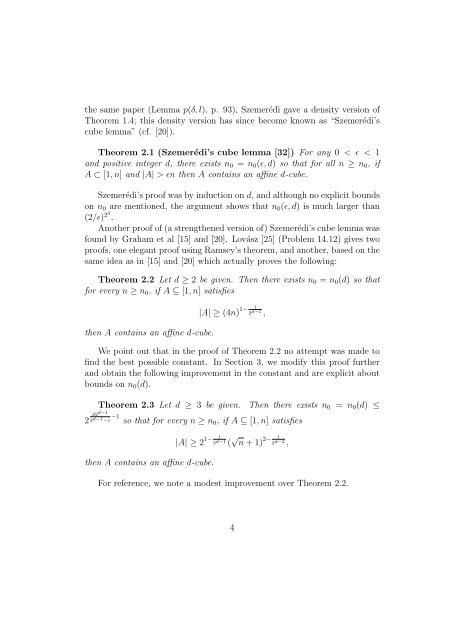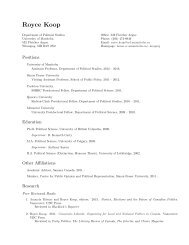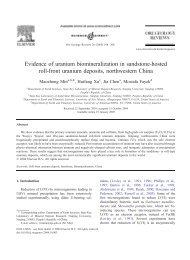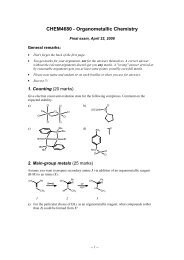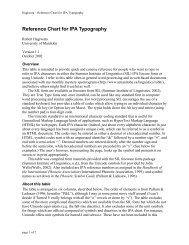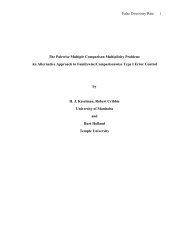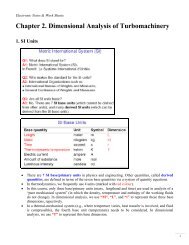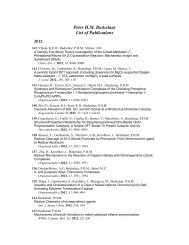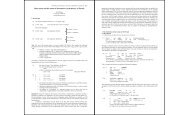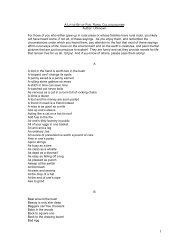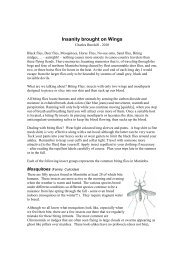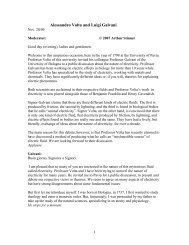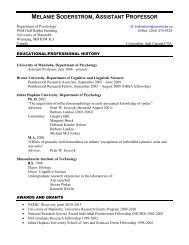Extremal problems for affine cubes of integers - University of Manitoba
Extremal problems for affine cubes of integers - University of Manitoba
Extremal problems for affine cubes of integers - University of Manitoba
Create successful ePaper yourself
Turn your PDF publications into a flip-book with our unique Google optimized e-Paper software.
the same paper (Lemma p(δ, l), p. 93), Szemerédi gave a density version <strong>of</strong><br />
Theorem 1.4; this density version has since become known as “Szemerédi’s<br />
cube lemma” (cf. [20]).<br />
Theorem 2.1 (Szemerédi’s cube lemma [32]) For any 0 < ɛ < 1<br />
and positive integer d, there exists n0 = n0(ɛ, d) so that <strong>for</strong> all n ≥ n0, if<br />
A ⊂ [1, n] and |A| > ɛn then A contains an <strong>affine</strong> d-cube.<br />
Szemerédi’s pro<strong>of</strong> was by induction on d, and although no explicit bounds<br />
on n0 are mentioned, the argument shows that n0(ɛ, d) is much larger than<br />
(2/ɛ) 2d.<br />
Another pro<strong>of</strong> <strong>of</strong> (a strengthened version <strong>of</strong>) Szemerédi’s cube lemma was<br />
found by Graham et al [15] and [20]. Lovász [25] (Problem 14.12) gives two<br />
pro<strong>of</strong>s, one elegant pro<strong>of</strong> using Ramsey’s theorem, and another, based on the<br />
same idea as in [15] and [20] which actually proves the following:<br />
Theorem 2.2 Let d ≥ 2 be given. Then there exists n0 = n0(d) so that<br />
<strong>for</strong> every n ≥ n0, if A ⊆ [1, n] satisfies<br />
then A contains an <strong>affine</strong> d-cube.<br />
1<br />
1−<br />
|A| ≥ (4n) 2d−1 ,<br />
We point out that in the pro<strong>of</strong> <strong>of</strong> Theorem 2.2 no attempt was made to<br />
find the best possible constant. In Section 3, we modify this pro<strong>of</strong> further<br />
and obtain the following improvement in the constant and are explicit about<br />
bounds on n0(d).<br />
Theorem 2.3 Let d ≥ 3 be given. Then there exists n0 = n0(d) ≤<br />
2 d2d−1<br />
2 d−1 −1 −1 so that <strong>for</strong> every n ≥ n0, if A ⊆ [1, n] satisfies<br />
then A contains an <strong>affine</strong> d-cube.<br />
1<br />
1−<br />
|A| ≥ 2 2d−1 ( √ 1<br />
2−<br />
n + 1) 2d−2 ,<br />
For reference, we note a modest improvement over Theorem 2.2.<br />
4


